Saudi Arabia’s government is looking at smart, alternate revenue sources

Saudi Arabia’s foreign reserves are a confidence booster but undoubtedly the government is looking at smart, alternate revenue sources that will not erode the country’s competitive advantage, say economists.
Saudi Arabia has the financial depth to continue spending on development despite the decline in oil revenues, they said. Net foreign assets held by the Saudi Arabian Monetary Agency (SAMA) stood at $640 billion in October.
“Saudi development policy has always been strategically anchored and it is highly unlikely that the oil cycle (which is what it is) would meaningfully derail this,” a Gulf-based regional analyst told Arab News on Sunday.
The state budget for 2016 is expected to be released this week.
Markets are jittery, however, because low crude prices have pushed state finances into deficit.
The Saudi Stock Exchange has fallen 16.3 percent so far this year.
The Tadawul All-Share Index ended lower 1.63 percent on Sunday at 6,931.08 points.
The value of traded shares exceeded SR5 billion on Sunday.
The Petrochemical Industries index dropped 2.15 percent to 4,723.88 points on Sunday but down 19.35 percent so far this year.
Oil accounts for around 80 percent of government revenue and 45 percent of GDP, despite attempts to diversify the economy.
The government’s deficit this year is expected to come in at about SR400 to SR500 billion, around 20 percent of gross domestic product, Reuters has previously quoted economists as saying.
“Authorities are contemplating additional revenue-raising measures. These could include — either singularly or in combination — cuts to subsidies, the imposition of corporate taxes, the introduction of VAT (possibly taken under the cover of a GCC wide initiative) along with punitive taxes on certain products, and privatization,” stated the Samba Economic Monitor released this month.
“We await the release of the 2016 budget to see if it provides specific measures, possibly encased in a medium term fiscal framework, something that the IMF has long been urging,” the report added.
The rapid increase in oil prices from 2003 onward strengthened the public finances of Saudi Arabia. The Kingdom was running a budget surplus of 12 percent of gross domestic product in 2012, but this had turned into a deficit of 3.4 percent of GDP two years later.
Speaking to Arab News, Camille Accad, economist at Asiya Investments Company, said that the large amount of reserves accumulated over the years will help Saudi Arabia cut spending in a gradual manner.
Fahad Alturki, chief economist and head of research at Jadwa Investment, told Arab News: “At least in the short term, we think that financing this deficit is not a problem, as it can be done by drawing down the stock of foreign assets built up in recent years.”
He said: “At the end of October net foreign assets at SAMA stood at $640 billion (SR2.40 trillion). The huge stock of assets that the government can call on gives Saudi Arabia an advantage over most other countries in alleviating the impact of lower oil prices.”
Alturki added: “Also, the new series of sovereign bond issuance (around SR20 billion per month since June) provides the government with more room to continue financing strategic projects such as key infrastructure development including transport, housing, oil, power and water and support the private sector where necessary.”
He said: “We think the government will increasingly rely on debt issuance to finance its future spending, which will mean lower pressure on FX reserve withdrawals. That being said, we don’t expect the government to allow for its bond issuances to reach a level where it could crowd out credit available to the private sector.”
Alturki added: “We expect that the economy will continue to slow in 2016, dragged down by slower growth in both the oil and nonoil sectors. The nonoil private sector will continue to grow albeit at a slowing pace, as reduced government spending should continue to have a negative impact on business activity. However, we think that government will maintain a level of spending high enough to continue supporting positive growth in the nonoil private sector.”
He said: “We expect the 2016 to confirm again the government’s determination and ability to support economic activity despite the prevailing subdued oil pricing environment. It will most likely highlight the strong focus on economic diversification as spending on physical and social infrastructure are likely to be kept at elevated levels.”
Saudi Arabia should also consider introducing new policies to preserve its foreign assets and create a sovereign wealth fund to increase returns on them, Khalid Alsweilem, a former senior official at SAMA, now fellow at the Harvard Kennedy School’s Belfer Center in Boston, told Reuters recently.
Speaking to Bloomberg, Saudi economist Abdullah El-Kuwaiz said: “We have all the basic things in place — infrastructure, education — and we faced this problem before. We can survive.”
World oil prices dived last week to a seven-year low.
US benchmark West Texas Intermediate for delivery in January tumbled to $34.39 a barrel on Friday —touching the lowest since Feb. 18, 2009.
Brent crude had plunged on Monday to $36.33 per barrel, last witnessed on Dec. 24, 2008, and skirted close to this level on Friday.
Source: Arab News – Budget 2016: Oil cycle unlikely to derail Saudi economic expansion









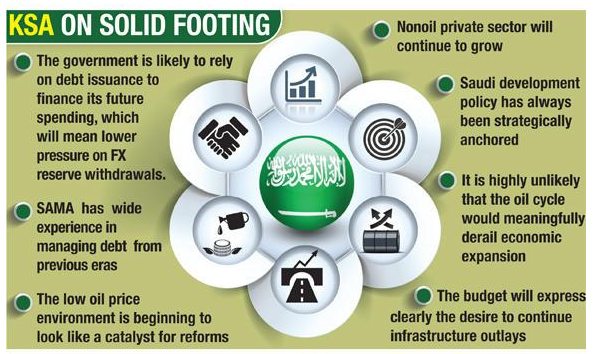
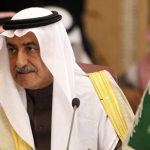
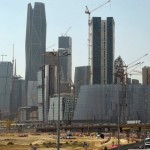
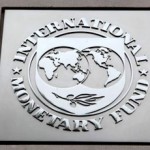

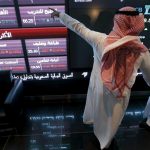
















The decline of Oil price will affect the economy of most of the Gulf countries. No doubt that more than 85% of the GDP is based on oil. The problem with Saudi Arabia might be a little bit different because the previous Government at the reign of King Abdullah started many project simultaneously. Which in turn will drain the cash available. But I do hope that the price of oil will start to bounce back within the coming few months. For sure it might not be where it has been reach but at least between 50-60 $.